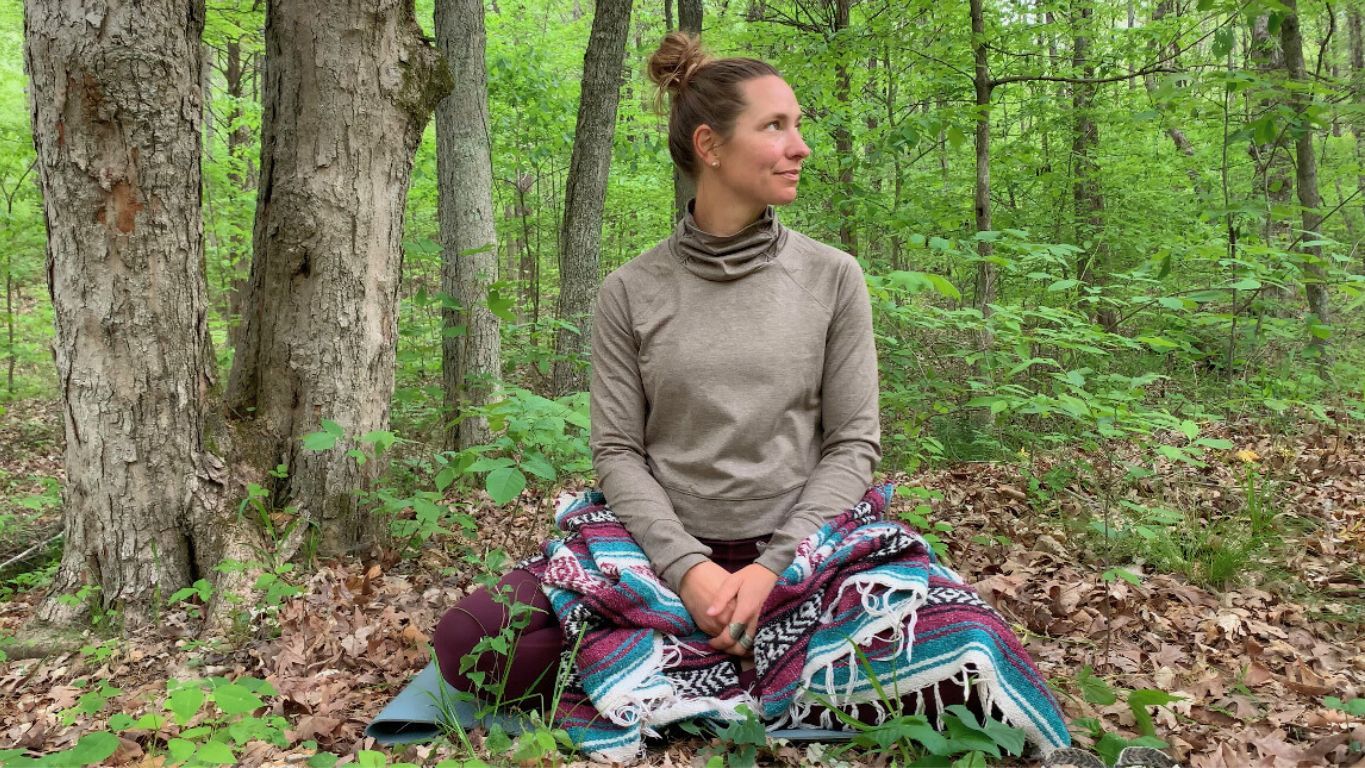Building a Realistic Meditation Practice

The habit of meditation has changed my life. It was subtle at first but then the benefits started to ripple into every aspect of my being. It's the habit that if I stop doing, my mental and emotional self notices right away.
Interestingly enough, it's actually one of the simplest habits to integrate into your life because there isn't just one way to do. You can practice anytime, anywhere and you'll notice the shift right away.
While many have the perceived notion that meditation is a lofty act, is difficult to achieve or you need special training from a teacher. It can be as simple as sitting in the passenger seat of the car, laying in bed before waking or sitting outside with traffic going by.
Like all good habits, you need a solid foundation to get started and to keep going. So let's breakdown all things meditation.
What Is Meditation? How Is It Different Than Mindfulness?
One way to define meditation is as an opportunity to train your mind to improve concentration, positive emotions, self-love, connection and focus - ALL without judgement (can't be hard on yourself here). Ideally you are laying down, standing or sitting for a few seconds to minutes to pause and be still. Where as mindfulness is the practice of awareness and can happen while you wash dishes, walk the dog, have sex or tie your shoe. You are focusing on one task at a time and channeling all your senses to one thing.
Why Should I Do It? How Will It Change My Life?
Here are a few of my favorite reasons to have a meditation routine:
- It can relax and calm the body but can also energize and stimulate
- It's been scientifically shown to improve immunity, sleep, oxygen flow in the body, regulate hormones and decreases stress and negative emotions
- It transfers into your everyday life
Actually, many of the benefits are difficult to define - you begin to understand yourself better, you feel more at home in your own skin, and are less reactive when shit hits the fan. You turn into a calm cucumber. Things that used to bother and annoy your no longer do and you have an expanded heart to love even more.
How To Do It Daily
- Start with 1 minute a day - pick the same time to sit for 60 seconds. If you want to go over that's fine, but always use 1 minute as your baseline. Once you pick a length of time, stick with it for weeks, even months, until it feels super easeful.
- Pick a quiet spot - Choose the same zen spot to feel safe and relaxed. It doesn't have to be perfectly silent but enough so you can unwind. Try next to your bed after you go to the bathroom or in your closet before bed or in your favorite chair in the living room or on the floor in your van. Like time, stick with the same physical spot for consistency.
- Choose Your Reminder To Start - This is known as a trigger or cue. Every habit has one is the reminder to start your 1 minute. You can set an alarm or do it before a preceding action (ex "I will meditate before I eat breakfast). Place your new habit in between two habits that already happen automatically.
- Sit Comfortably - I love having a yoga mat, a meditation cushion, blanket, and candle. These items make me conformable and help decrease distractions but it is not necessary. Try different options. Lay down, sit without a pillow, lean against a wall or sit in a chair. See what works!
- Pick one focus - Either with your eyes open or closed, focus on the flame of a candle or pick a word or phrase you say (either in your head or out loud) like "I am calm" or "joy." You can also listen to a guided meditation, gaze at a tree or open horizon or notice your breath going in and going out.
- Lower Expectations - Yep, you read right. Don't expect yourself to transcend all dimensions and be an all peaceful being after a 5 minute meditation. Simply focus on using your senses. What do you smell? What do you hear in the distance? How does it feel to be still?
Common Thoughts + Meditation Analogy
"Am I doing it right?"
"Nothing happened."
"It's hard for me to sit still."
"My mind won't turn off."
"What's actually supposed to happen?"
The critical self will be sounding off when you sit but don't let that stop you. Instead think of this analogy. Imagine you are hot air balloon over a city. As you rise up into the sky and look down, you see buildings, people walking, and cars in traffic. These represent your busy thoughts. But you now and perspective and distance from yourself and can simply observe thoughts and emotions from afar without reacting or engaging.

